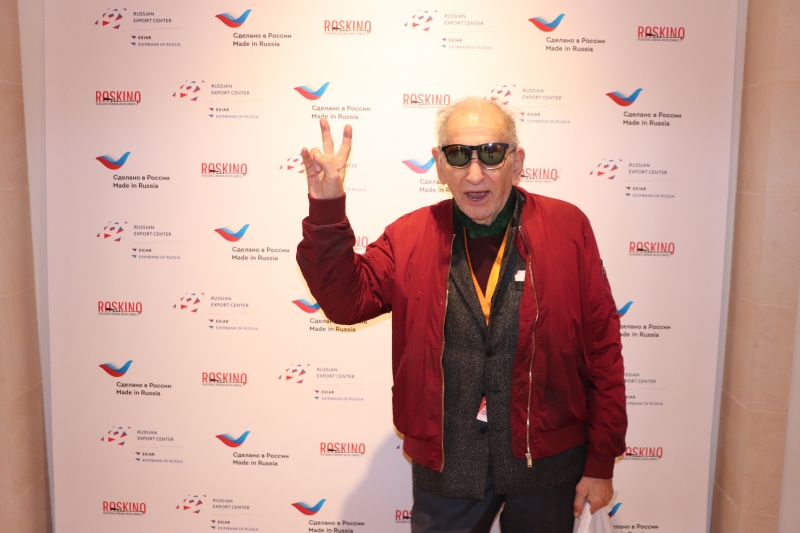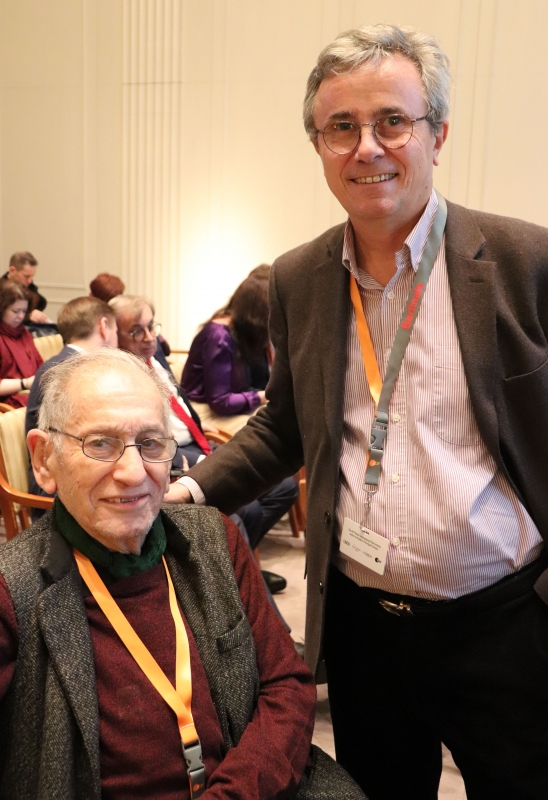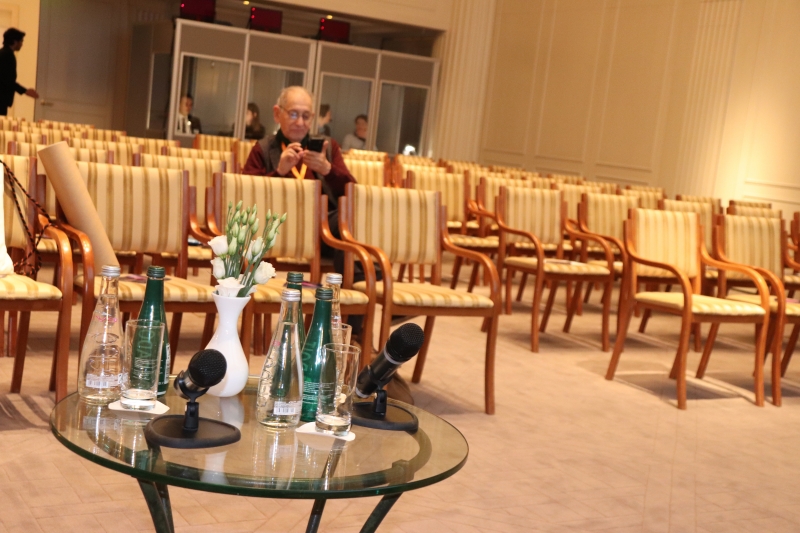
by Alex Deleon <filmfestivals.com>
The 22nd International Film Festival of Kerala, IFFK, held in the southmost Indian city of India, Trivandarum, from December 8th to 15th with its highly eclectic and discerning programming was a treasure chest of discoveries. The amazing hospitality of the festival providing power lunches and extravagant dinner events every single day for pampered delegates was such a rich social scene that it was hard to get around to seeing all the films one wanted to see at the many venues scattered about town (in air conditioned chauffeured vehicles with courteous drivers). However, this dazzled reporter managed to see about ten unusually interesting pictures during the week, and capsule reviews follow.
Hands down, the best film I saw, on the very last day, was the Hungarian entry by veteran János Szász entitled "The Butcher, The Whore, and the One-Eyed Man", 2017. Let not this somewhat ponderous title put one off. TBTW&TOEM or "A hentes, a kurva és a félszemü" (original Hungarian title) Is another dark masterpiece by a meticulous director who does not make many films but when he does come up with one it is usually a memorable Magyar cinema landmark. Mr. Szász, now 59, has directed a grand total of only eleven films since 1983 but has nevertheless amassed a rock solid filmography that includes such international art house hits as "Woyceck", 1994, "Witman fiúk 1997, "Opium, Diary of a Mad Woman" (2007) and "The Notebook" 2013.
The current Szasz opus, filmed in stark black and white, by regular Szász cameraman Tibor Maté , is the bizarre tale of a greedy butcher who got butchered by a runaway renegade couple who, after sawing his corpse up with the tools of his slaughterhouse trade, dumped the hunks of human flesh and bone into the Danube. Based on an actual gruesome crime that shook Budapest up in 1925 this is another masterful probe into psychopathic psychology by the man who has written the Hungarian book on this subject with unerring directorial aplomb.

Hungarian János Szász is a thinking man's director of deep psychological studies.
Two Hindi films:
"Newton" and "Tin Aur Aadha" (three and a half)

Newton, an off Bollywood Hindi film devoid of songs and dances stars rapidly rising tinseltown star Rajkumar Rao. It was one of the big Indian films of 2017 and was nominated as India's entry to this years Oscars but failed make the final short list to general Indian disappointment.
Rao plays a government clerk on election duty in the conflict ridden jungle of Central India trying his best to conduct free and fair voting in a remote village of ignorant tribal people who do not really understand what elections are all about. An interpreter is required to communicate with them as their tribal language is totally unrelated to other Indian languages and none of them speak Hindi. Complicating matters is the apathy of the security forces and the looming fear of guerrilla attacks by Naxalite communist rebels. A bit of romantic relief is supplied by a tentative romance between Newton and the fetching female interpreter.
This sincere effort addresses two nagging Indian problems; how to avoid fixing of elections, and how to educate simple tribal people to the meaningfulnes of the voting process in "the world'slargest democracy". We learn at the very beginning that our heroe's name which is actually Nutan has been modified by him to conform to that of the famous English Physicist and mathematician Isaac Newton.
Hey, this guy is an intellectual, right? --and he is not interested in his father's outmoded attempts to get him properly married off in an arranged marriage. So being a young educated idealist he volunteers for a seemingly hopeless election mission in the threatened back woods and the rest of the story is about the various problems encountered there and his relationship with a no nonsense military man assigned to protect the election hut set up from possible Naxalite attack. Rao delivers a touching performance as the bewildered but determined and sincere young man among wolves but the film, while it maintains interest largely on Rao's engaging performance, is overly didactic and message laden. Sam Goldwyn would have called in Western Union.
"Teen aur Aadhya" (Three and a Half) written and directed by Daria Gai a Ukrainian resident of India for several years, and produced by Anurag Kashyap, aroused lively curiosity and discussions throughout the festival week. This is a story in three parts set in the same house at different times years apart. The half in question is the house itself which "observes" each little drama taking place within its confines.
The first tale is about a young boy and his bedridden grandfather who stages his own death in a most peculiar manner on leap year day. In tale number two the house has become a brothel with a young prostitute who tries to convince her clients that each time is her first time changing her name on each turn. Her main client is impotent except under certain conditions but keeps giving her money. In part three we meet an elderly couple, who may or may not be people we have encountered earlier. They lie around in bed touching and kissing tenderly while arguing and musing over their long gone sex drive and former passions.
What makes the film work in a special manner is the fact that each story is shot in a single take with no cuts as the action sweeps around the motionless walls. Various people relate to the three stories in various ways which is precisely what makes it so interesting. I liked them all but liked part three best. Judy Gladstone, a festival delegate from Canada and an astute film observer





























